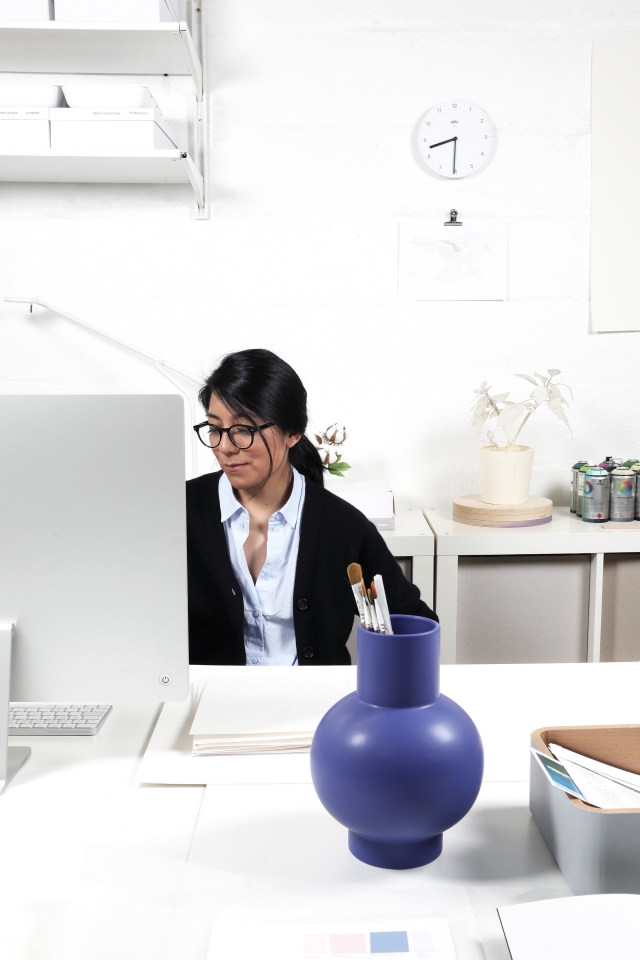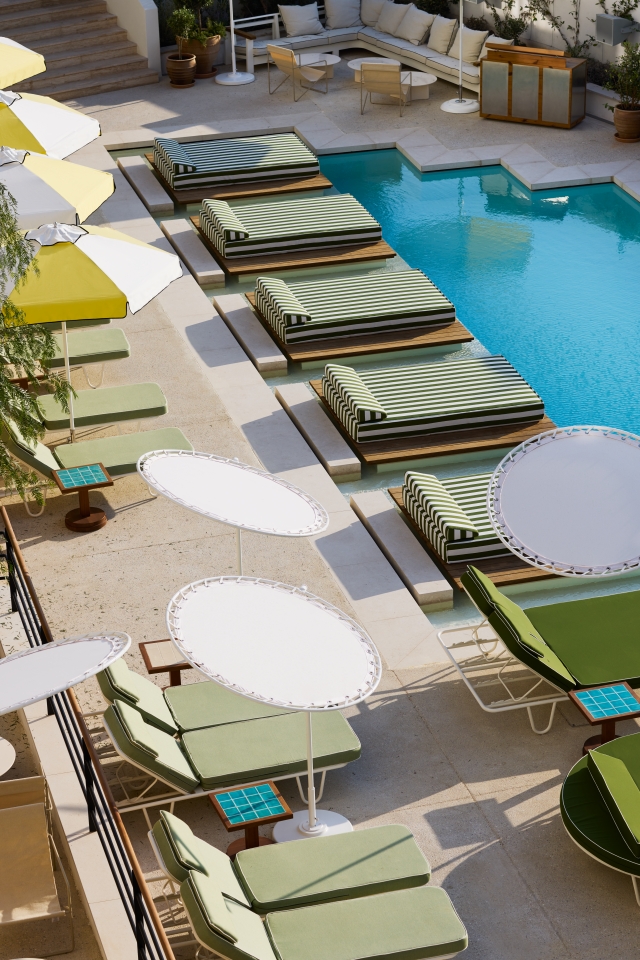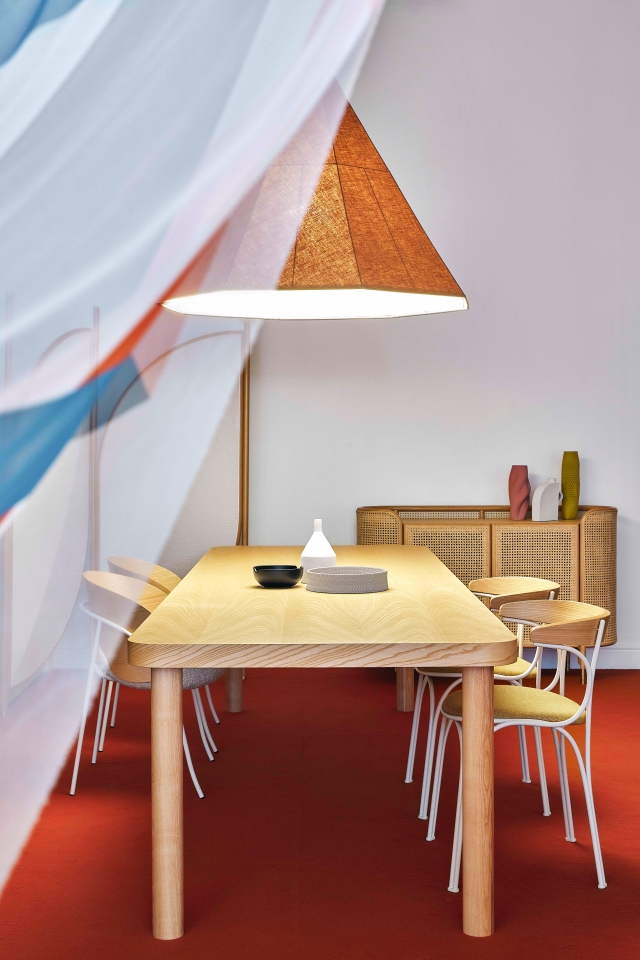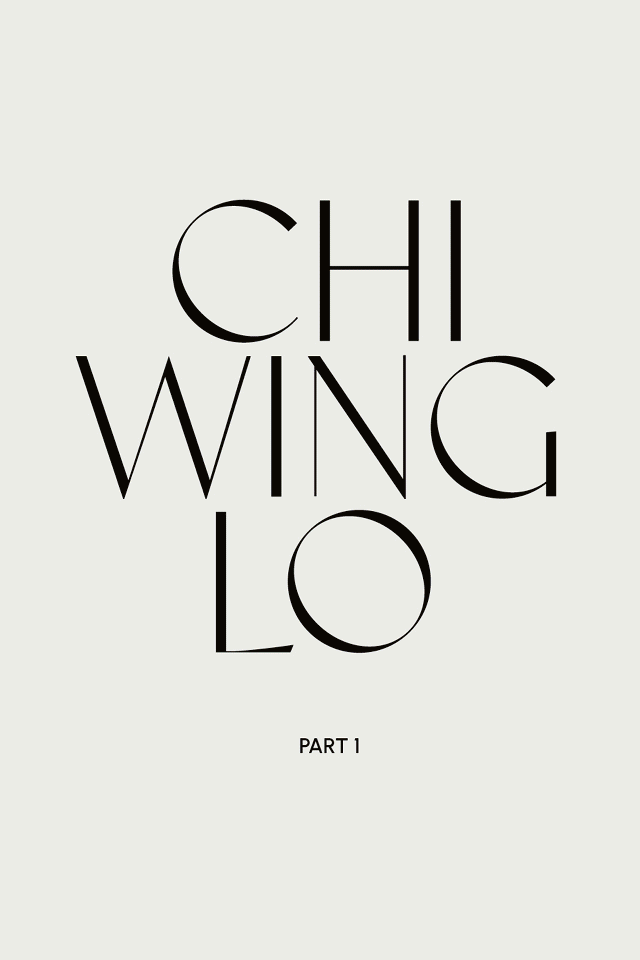Wu Sibo (b. 1976, Maoming, China) lives and works in Guangzhou, where he graduated from the Guangzhou Academy of Fine Arts in 2005. His near-monochromatic paintings portray rural life in southern China, his birthplace, through a lens of eerie stillness, juxtaposing local customs with modern attitudes. Mundane scenes become uncanny under his dark palette and stringent application of light. Through a process of defamiliarisation, he interrogates the quiet unease of alienation and dislocation. Wu's personal presence permeates his work: "I am not the spectator," Wu states, "I am one of 'them.'" His work has been exhibited at the Times Museum (Guangzhou, 2021) and Times Art Center (Berlin, 2020), and is held in private collections globally, including The Burger Collection, Hong Kong/Switzerland.
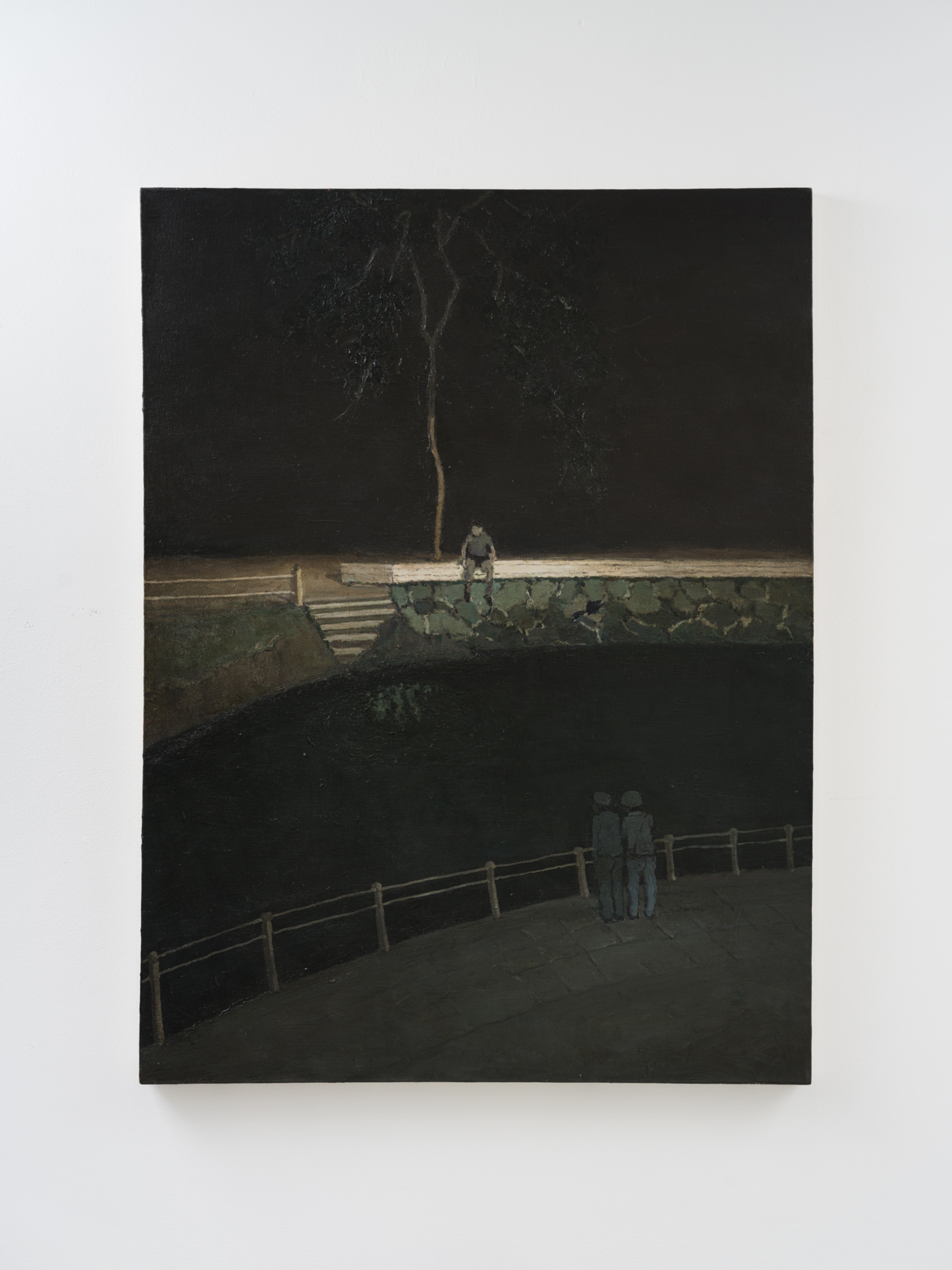
Ripples, 2011
Oil on canvas
120 x 90 cm
In Polyphony, Wu Sibo masterfully constructs a narrative of Maoming, akin to an episodic novel, unfolded through a series of scenes depicting daily life within the rural landscape. His distinctive chiaroscuro palette, often punctuated by a singular, subdued light source, transforms the mundane into something subtly unsettling. A fascinating duality defines Wu's artistic approach: thinly veiled, delicate layers of paint are juxtaposed against assertive impasto passages across the canvas, creating a visceral articulation of the artist's internal dialogue. This solo exhibition is being held at Flowers Gallery Hong Kong.

Honey, 2022
Oil on canvas
125 x 98 cm
This deliberate process of "defamiliarisation" elicits a disquieting new perception of the countryside, mirroring the sense of estrangement Wu himself experienced upon returning home from Guangzhou, the provincial capital where he now resides. As Wu observes, "the clues are interwoven and layered, attempting to tell the loneliness and alienation that can be seen within the scope of my gaze, as well as the unease in the dim twilight."
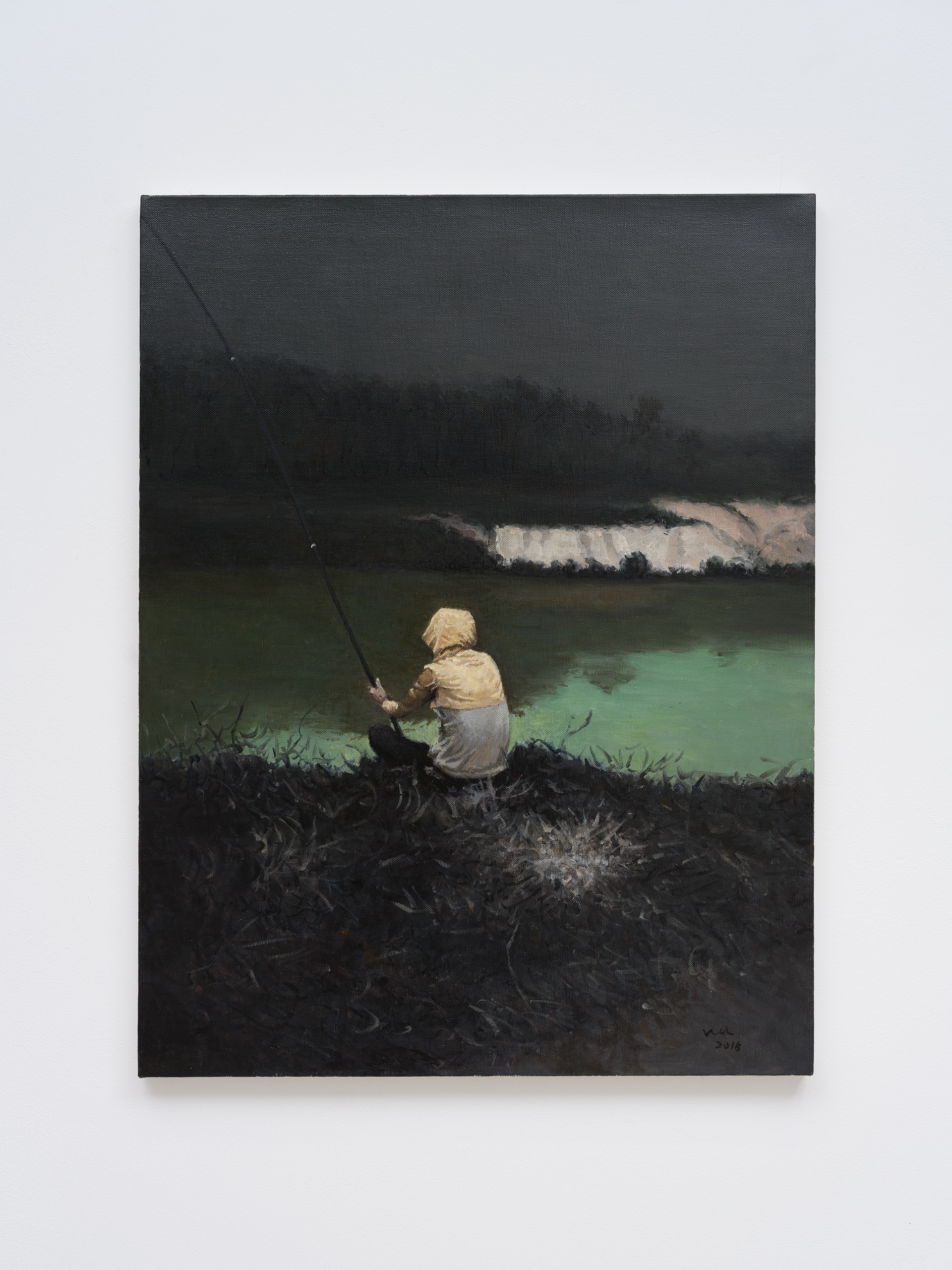
Fishing, 2015
Oil on canvas
85 x 68 cm
Through a "hauntological" examination, the exhibition explores how traces of the past reverberate in the present. This resonates with a universal small-town experience: the erosion of local character due to rapid modernization, the migration of younger generations to urban centers, and the homogenizing pressures of standardized language and globalization.
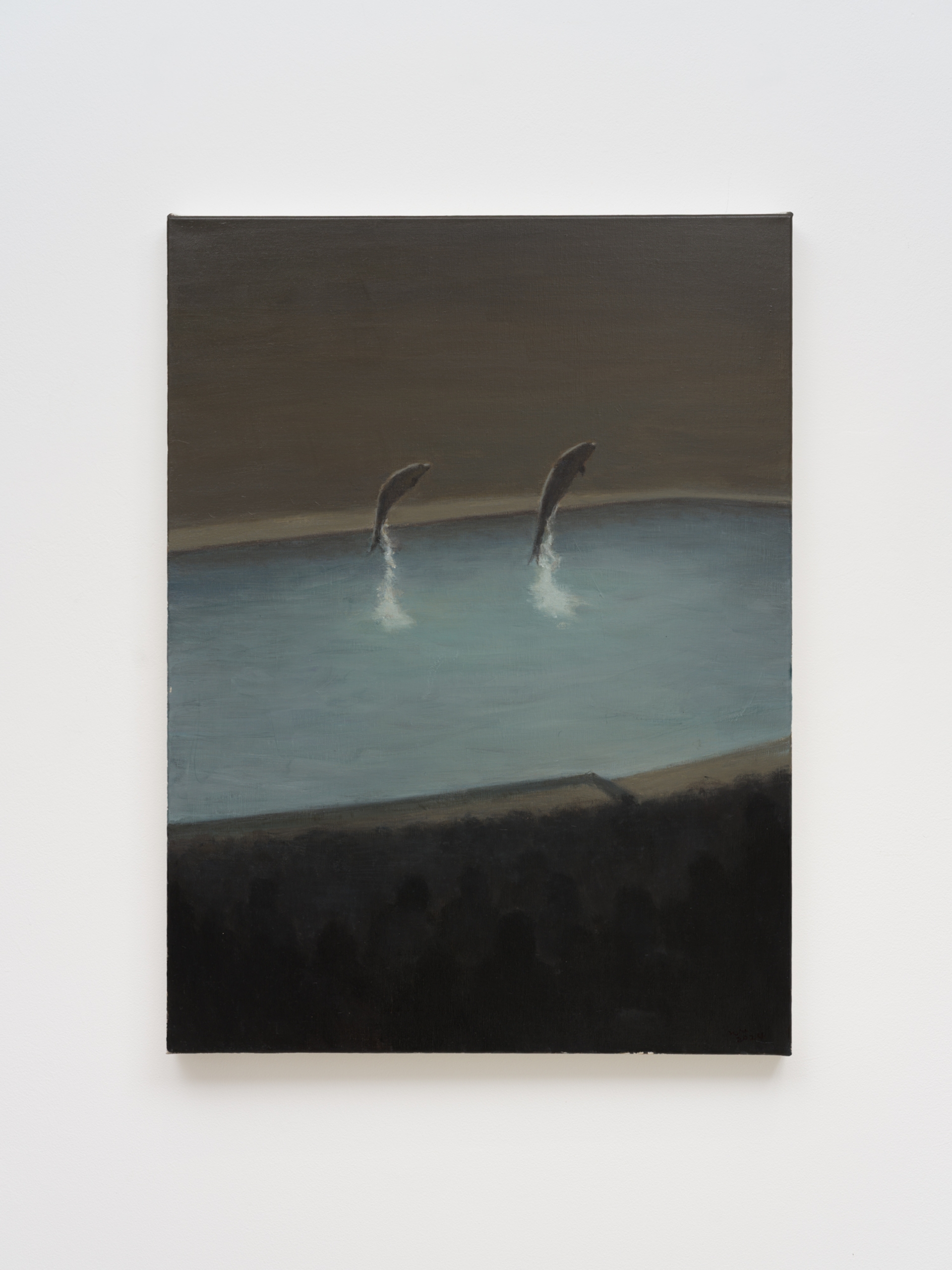
Performance II, 2024
Oil on canvas
80 x 60 cm
In "Honey" (2022), two beekeepers transport their hives amidst blossoming lychee and longan trees, while "Fishing" (2015) portrays a man patiently awaiting his catch. From the perspective of the subjects, whose lives are shaped by the cyclical rhythms of rural existence, these vignettes might appear tranquil and grounded. Yet, by intentionally removing natural light, Wu introduces an urban, linear sense of time, recasting the figures' stillness not as rest, but as a poignant idleness.
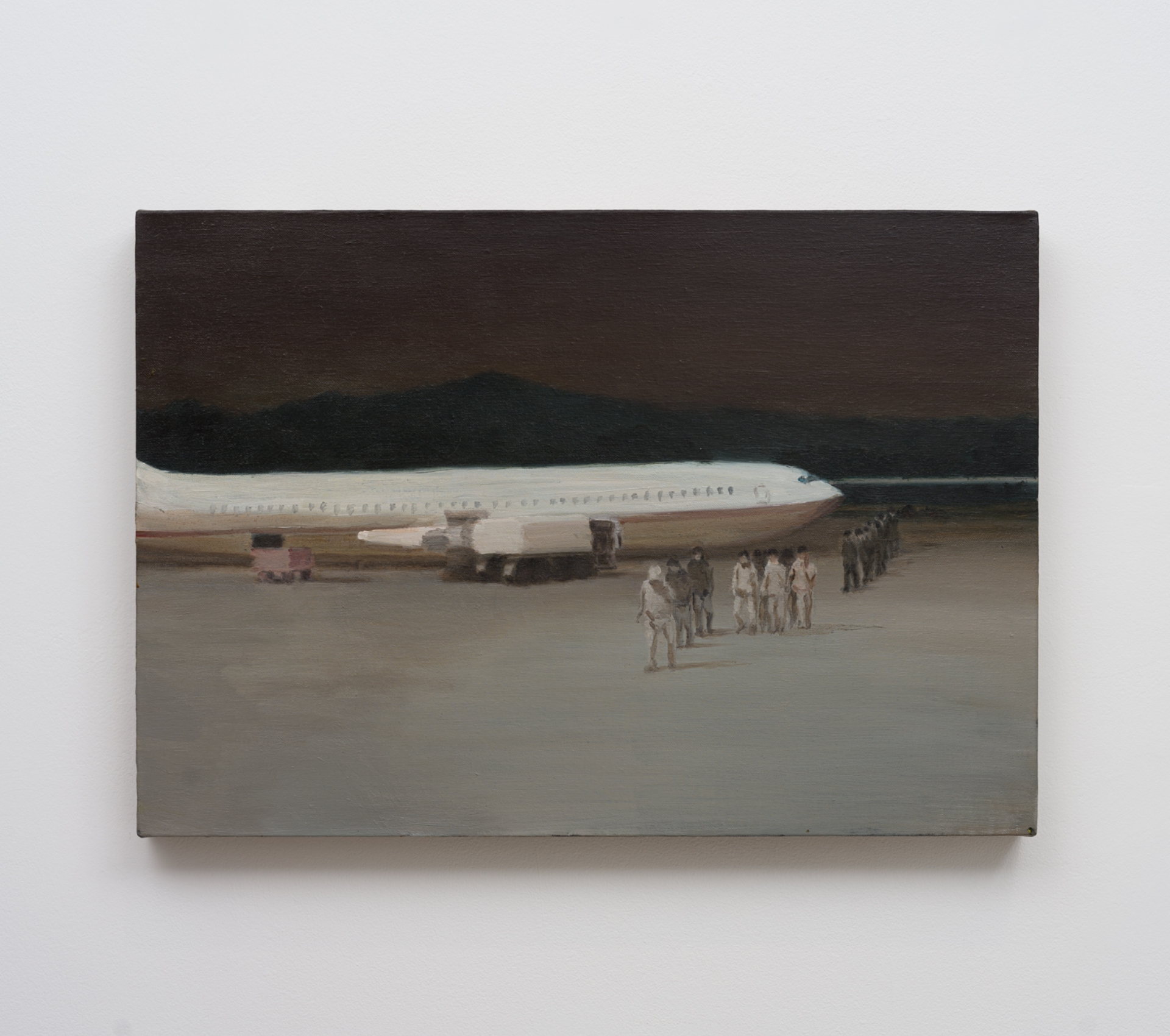
Last Stop, 2021
Oil on canvas
45 x 65 cm
Other scenes are drawn from current events, sparking a strong emotional response from the artist. "Last Stop" (2021) depicts rows of anonymous figures – undocumented migrants – escorted across a desolate airstrip. Having been transported from place to place and repeatedly denied entry, they arrive, finally, at a place where they are compelled to "belong."
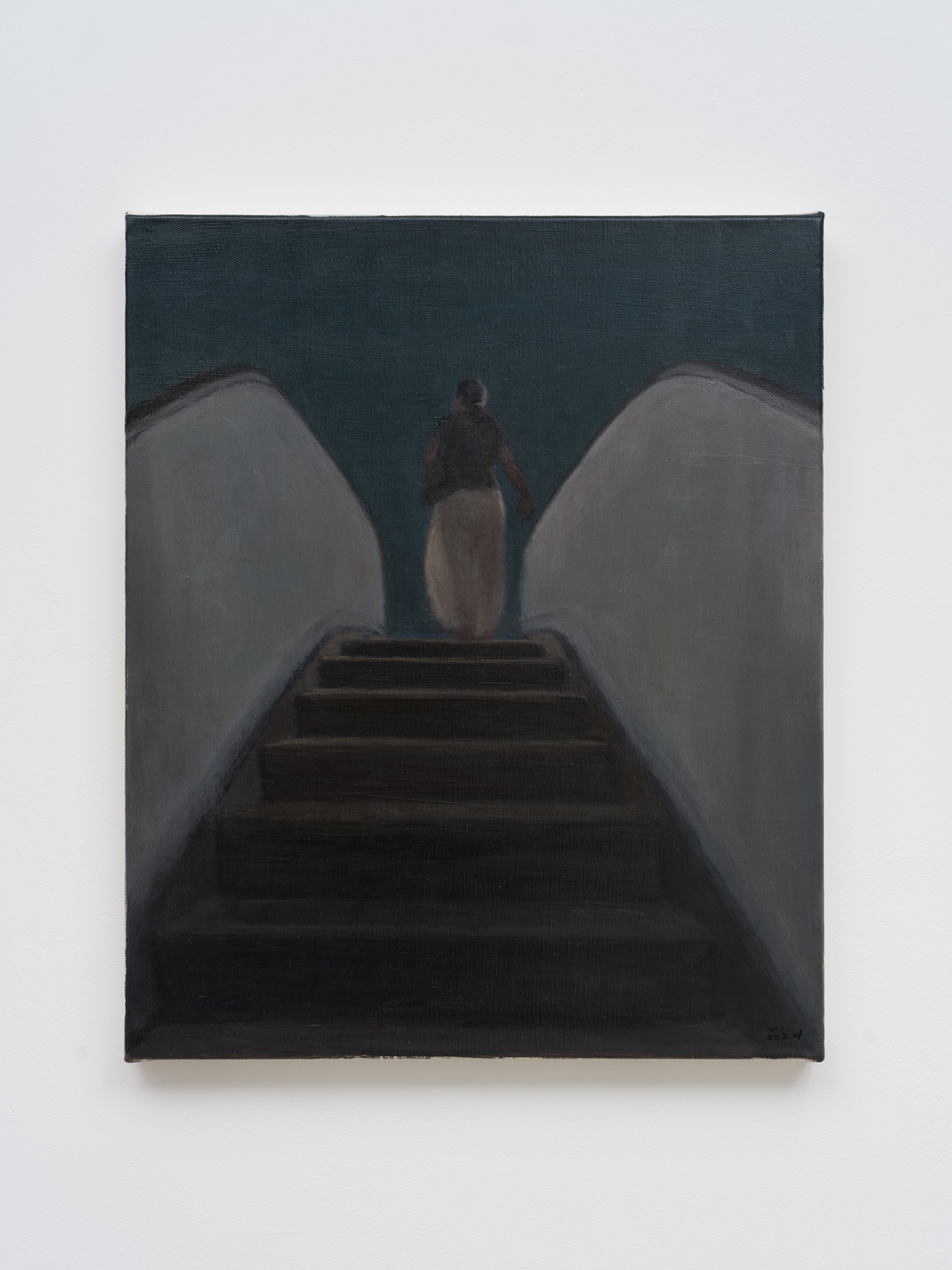
Upwards II, 2024
Oil on canvas
60 x 50 cm
Installed along a single wall within the gallery, the paintings engage in a silent, yet profound, conversation with one another, forming an open-ended dialogue on the evolving meaning of belonging in a rapidly changing world.





